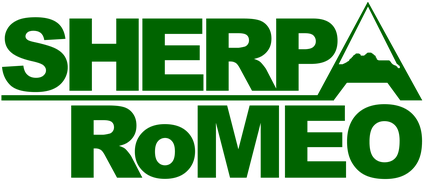An evaluation of the environmental literacy levels of nursing students in Turkey
DOI:
https://doi.org/10.26900/hsq.2.3.03Keywords:
Nursing students, environmental literacy, environmental knowledge , environmental attitude, environmental behaviour, environmental perceptionAbstract
The study was aimed to investigate the environmental literacy levels of the nursing students, including the dimensions of environmental knowledge, attitudes, behaviour, and perceptions. It was a descriptive and crosssectional study, including 292 nursing students who had accepted participation in the study. Data were collected in the fall term of the 2019-2020 academic year using the Sociodemographic Characteristics Form and the Environmental Literacy Scale. According to the results, nursing students’ sub-dimension scores were 12.23±2.96 for environmental knowledge, 66.11±12.25 for environmental attitude, 41.22±6.38 for environmental behaviour, and 10.26±2.08 for environmental perception. The environmental literacy levels of nursing students are at a moderate level. The study found a statistically significant difference between class level, age, gender, father educational status, talking about environmental issues in the family, environmental education status, being involved in the environmental project, source of environmental information, membership of the environmental organizations, and the mean score of the scale (p < 0.05). As a result, it is suggested to plan interventional studies with larger samples to improve the environmental literacy levels of nursing students and to make necessary regulations in the course contents.
Downloads
References
Dunlap RE. Show us the data: The questionable empirical foundations of “The death of environmentalism” thesis. Organ. Environ. 2006;19(1):88-102. doi: 10.1177/1086026605285590.
Mabogunje AL. The environmental challenges in sub-Saharan Africa. Environ Sci Policy Sust Dev. 1995;37(4):4-10. doi: 10.1080/00139157.1995.9929233.
Ramsey JM, Hungerford HR, Volk TL. Environmental education in the K-12 curriculum: Finding a niche. J Environ Educ. 1992;23(2):35-45. doi: 10.1080/00958964.1992.9942794.
Papadimitriou V. Professional development of in‐service primary teachers in environmental education: an action research approach. Environ Educ Res. 1995;1(1):85-97. doi: 10.1080/1350462950010107.
Roth CE. Environmental Literacy: Its roots, evolution, and directions in the1990s. Columbus,
OH: ERIC Clearinghouse for Science, Mathematics, and Environmental Education. 1992.
Reynolds HL, Brondizio ES, Robinson JM. Teaching environmental literacy: Across campus and across the curriculum (Vol. 38). Indiana university press; 2010.
Demirtaş N, Akbulut MC, Özşen ZS. A study on environmental literacy of university students’: Case of Beypazarı vocational school. J Anatol Environ Animal Sci. 2018;3(1):27-33. doi: 10.35229/jaes.392248.
Şahin S, Ünlü E, Ünlü S. Investigation of teacher candidates’ environmental literacy awareness level. Educ Sci. 2016:11(2);82-95.
Yavetz B, Goldman D, Pe’er S. Environmental literacy of pre‐service teachers in Israel: A comparison between students at the onset and end of their studies. Environ Educ Res. 2009;15(4): 393-415. doi: 10.1080/13504620902928422.
Uyar A, Temiz A. Determination of environmental literacy levels of classroom teachers and
its analysis with regard to some variables. J Int Soc Res. 2019;12(66):954-61. doi: 10.17719/ jisr.2019.3642.
Erol GH, Gezer K. Prospective of elementary school teachers’ attitudes toward environment and environmental problems. Int J Env Sci Ed. 2006;1(1):65-77.
Özmen D, Çetinkaya AÇ, Nehir S. University students’ attitudes towards environmental issues. TAF Prev Med Bull. 2005;4(6):330-44.
Tuncer G, Ertepinar H, Tekkaya C, Sungur S. Environmental attitudes of young people in Turkey: Effects of school type and gender. Environ Educ Res. 2005;11(2):215-33. doi: 10.1080/1350462042000338379.
Şama E. Teacher candidates’ attitudes toward environmental problems. GUJGEF. 2003;23(2):99- 110.
Hillman M, Stanisstreet M, Boyes E. Enhancing understanding in student teachers: the case of auto-pollution. J Educ Teach. 1996;22(3):311-25. doi: 10.1080/02607479620278.
Sayan B, Kaya H. Assessment of the environmental risk perceptions and environmental attitudes of nursing students. Contemp Nurse. 2016;52(6):771-81. doi: 10.1080/10376178.2016.1254051.
Gök ND, Fırat Kılıç H. Environmental Awareness and sensitivity of nursing students. Nurse Educ Today. 2021;101:104882. doi: 10.1016/j.nedt.2021.104882.
Cruz JP, Felicilda-Reynaldo RFD, Alshammari F, Alquwez N, Alicante JG, Obaid KB, et al. Factors influencing Arab nursing students’ attitudes toward climate change and environmental sustainability and their inclusion in nursing curricula. Public Health Nurs. 2018;35:598–605. doi: 10.1111/phn.12516.
Cruz JP, Alshammari F, Felicilda-Reynaldo RFD. Predictors of Saudi nursing students’ attitudes towards environment and sustainability in health care. Int Nurs Rev. 2018;65:408-16. doi: 10.1111/inr.12432.
Kışoğlu M. Investigation the effect of student centred instruction on prospective teachers’ environmental literacy, Phd dissertation, Atatürk University Graduate School of Natural and Applied Sciences; 2009.
Kayalı, H. A research on environmental literacy of religious culture and moral knowledge teacher trainees. Marmara Geogr Rev. 2018;37:63-9. doi: 10.14781/mcd.386113.
Teksöz G, Şahin E, Ertepınar H. Environmental literacy, pre-service teachers, and a sustainable future. HUJE. 2010;39(39):307-20.
Kocalar AO, Balcı A. The environment literacy levels of prospective geography teachers. Int J Soc Sci Res. 2013;2(2):15-49.
Altınöz N. Environmental literacy levels of science prospective teachers, Master’s dissertation, Sakarya University Institute of Science. 2010.
Artun H, Uzunöz A, Akbaş Y. The evaluation of the factors affecting the levels of environmental literacy of social science prospective teachers. Pamukkale Univ J Educ. 2013;2(34):1-14. doi: 10.9779/PUJE467.
Liu SY, Yeh SC, Liang SW, Fang WT, Tsai HM. A national investigation of teachers’ environmental literacy as a reference for promoting environmental education in Taiwan. J Environ Educ. 2015;46(2):114-32. doi: 10.1080/00958964.2014.999742.
Shamuganathan S, Karpudewan M. Modeling environmental literacy of malaysian preuniversity students. Int J Environ Sci Educ. 2015;10(5):757-71. doi: 10.12973/ijese.2015.264a.
Güler E. The determination of environmental literacy levels of 8th grade students and examination of students’ environmental literacy level in terms of various variables, Master’s dissertation, Çukurova University Institute of Social Sciences; 2013.
Bilim, İ. Determination of environmental literacy levels of education faculty students in terms of sustainable environment, Master’s dissertation, Afyon Kocatepe University Institute of Social Sciences; 2012.
Koç H, Karatekin K. An investigation into geography teacher trainees’ environmental literacy levels with respect to various variables. Marmara Geogr Rev. 2013;28:139-74.
Karatekin K, Aksoy B. Examination of teacher candidates of social studies’ environmental literacy level in terms of various variables. International Periodical for the Languages, Literature and History of Turkish or Turkic. 2012;7(1):1423-1438. doi: 10.7827/turkishstudies.2858.
Downloads
Published
How to Cite
Issue
Section
License
Copyright (c) 2022 Holistence Publications

This work is licensed under a Creative Commons Attribution 4.0 International License.
When the article is accepted for publication in the HSQ authors transfer all copyright in the article to the Holistence Academy Ar-Ge Yazılım Yayıncılık Eğitim Danışmanlık ve Organizasyon Ticaret Ltd. Şti.The authors reserve all proprietary right other than copyright, such as patent rights.
Everyone who is listed as an author in this article should have made a substantial, direct, intellectual contribution to the work and should take public responsibility for it.
This paper contains works that have not previously published or not under consideration for publication in other journals.















